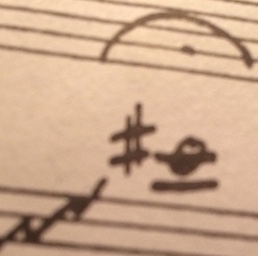
It is essential then, once you have learned to use the language, that you pay attention to the possibility of compressing the many patterns which you put together, in the smallest possible space. You may think of this process of compressing patterns, as a way to make the cheapest possible building which has the necessary patterns in it. It is, also, the only way of using a pattern language to make buildings which are poems.[ A Pattern Language, p. xliv]

// EXAMPLE:
if (error == TRUE) return FALSE;
// EQUIVALENT:
if (!ok) return 0; // "if not ok, .."
// EXAMPLE:
std::vector<long unsigned int> value_vector = this->make_vector(void); // could be.
// EQUIVALENT:
vector<ulong> V = make_vec();
// or, if you speak UNIX:
vector V = mkvec();
nedwaves.com 2017 [171108]